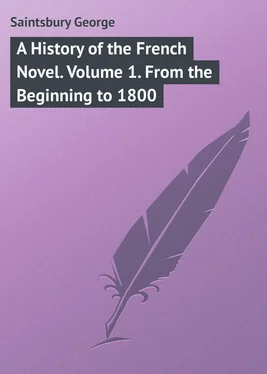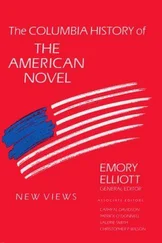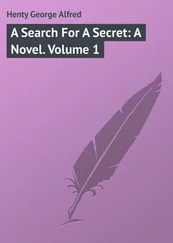George Saintsbury - A History of the French Novel. Volume 1. From the Beginning to 1800
Здесь есть возможность читать онлайн «George Saintsbury - A History of the French Novel. Volume 1. From the Beginning to 1800» — ознакомительный отрывок электронной книги совершенно бесплатно, а после прочтения отрывка купить полную версию. В некоторых случаях можно слушать аудио, скачать через торрент в формате fb2 и присутствует краткое содержание. Жанр: foreign_language, foreign_prose, на английском языке. Описание произведения, (предисловие) а так же отзывы посетителей доступны на портале библиотеки ЛибКат.
- Название:A History of the French Novel. Volume 1. From the Beginning to 1800
- Автор:
- Жанр:
- Год:неизвестен
- ISBN:нет данных
- Рейтинг книги:4 / 5. Голосов: 1
-
Избранное:Добавить в избранное
- Отзывы:
-
Ваша оценка:
- 80
- 1
- 2
- 3
- 4
- 5
A History of the French Novel. Volume 1. From the Beginning to 1800: краткое содержание, описание и аннотация
Предлагаем к чтению аннотацию, описание, краткое содержание или предисловие (зависит от того, что написал сам автор книги «A History of the French Novel. Volume 1. From the Beginning to 1800»). Если вы не нашли необходимую информацию о книге — напишите в комментариях, мы постараемся отыскать её.
A History of the French Novel. Volume 1. From the Beginning to 1800 — читать онлайн ознакомительный отрывок
Ниже представлен текст книги, разбитый по страницам. Система сохранения места последней прочитанной страницы, позволяет с удобством читать онлайн бесплатно книгу «A History of the French Novel. Volume 1. From the Beginning to 1800», без необходимости каждый раз заново искать на чём Вы остановились. Поставьте закладку, и сможете в любой момент перейти на страницу, на которой закончили чтение.
Интервал:
Закладка:
It was an inevitable result of the discovery of printing that the cultivation of the vernacular for purposes of all work – that is to say, for prose – should be largely increased. Yet a different influence arising, or at least eked out, from the same source, rather checked this increase. The study of the classical writers had at first a tendency to render inveterate the habit of employing Latin for the journey-work of literature, and in the two countries which were to lead Western Europe for the future (the literary date of Italy was already drawing to a close, and Italy had long possessed vernacular prose masterpieces), it was not till the middle of the sixteenth century that the writing of vernacular prose was warmly advocated and systematically undertaken. The most interesting monuments of this crusade, as it may almost be called, in England are connected with a school of Cambridge scholars who flourished a little before our period, though not a few of them, such as Ascham, Wilson, and others, lived into it. A letter of Sir John Cheke's in the very year of the accession of Elizabeth is the most noteworthy document on the subject. It was written to another father of English prose, Sir Thomas Hoby, the translator of Castiglione's Courtier . But Ascham had already and some years earlier published his Toxophilus , and various not unimportant attempts, detailed notice of which would be an antedating of our proper period, had been made. More's chief work, Utopia , had been written in Latin, and was translated into English by another hand, but his History of Edward V. was not a mean contribution to English prose. Tyndale's New Testament had given a new and powerful impulse to the reading of English; Elyot's Governor had set the example of treating serious subjects in a style not unworthy of them, and Leland's quaint Itinerary the example of describing more or less faithfully if somewhat uncouthly. Hall had followed Fabyan as an English historian, and, above all, Latimer's Sermons had shown how to transform spoken English of the raciest kind into literature. Lord Berners's translations of Froissart and of divers examples of late Continental romance had provided much prose of no mean quality for light reading, and also by their imitation of the florid and fanciful style of the French-Flemish rhétoriqueurs (with which Berners was familiar both as a student of French and as governor of Calais) had probably contributed not a little to supply and furnish forth the side of Elizabethan expression which found so memorable an exponent in the author of Euphues .
For our purpose, however, Roger Ascham may serve as a starting-point. His Toxophilus was written and printed as early as 1545; his Schoolmaster did not appear till after his death, and seems to have been chiefly written in the very last days of his life. There is thus nearly a quarter of a century between them, yet they are not very different in style. Ascham was a Yorkshire man born at Kirbywiske, near Northallerton, in 1515; he went to St. John's College at Cambridge, then a notable seat of learning, in 1530; was elected scholar, fellow, and lecturer, became public orator the year after the appearance of Toxophilus , acted as tutor to the Princess Elizabeth, went on diplomatic business to Germany, was Latin secretary to Queen Mary, and after her death to his old pupil, and died on the 30th December 1568. A treatise on Cock-fighting (of which sport he was very fond) appears to have been written by him, and was perhaps printed, but is unluckily lost. We have also Epistles from him, and his works, both English and Latin, have been in whole or part frequently edited. The great interest of Ascham is expressed as happily as possible by his own words in the dedication of Toxophilus to Henry VIII. "Although," he says, "to have written this book either in Latin or Greek … had been more easier and fit for my trade in study, yet … I have written this English matter in the English tongue for Englishmen" – a memorable sentence none the worse for its jingle and repetition, which are well in place. Until scholars like Ascham, who with the rarest exceptions were the only persons likely or able to write at all, cared to write "English matters in English tongue for Englishmen," the formation of English prose style was impossible; and that it required some courage to do so, Cheke's letter, written twelve years later, shows. 11 11 The letter is given in full by Mr. Arber in his introduction to Ascham's Schoolmaster , p. 5.
"I am of this opinion that our own tongue should be written clean and pure, unmixed and unmingled with borrowing of other tongues, wherein, if we take not heed by time, ever borrowing and never paying, she shall be fain to keep her house as bankrupt. For then doth our tongue naturally and praisably utter her meaning, when she borroweth no counterfeitures of other tongues to attire herself withal, but useth plainly her own with such shift as nature, craft, experience, and following of other excellent doth lead her unto, and if she want at any time (as being imperfect she must) yet let her borrow with such bashfulness that it may appear, that if either the mould of our own tongue could serve us to fashion a word of our own, or if the old denizened words could content and ease this need we would not boldly venture of unknown words." 12 12 It will be seen that Cheke writes what he argues for, "clean and pure English." "Other excellent" is perhaps the only doubtful phrase in the extract or in the letter.
The Toxophilus and the Schoolmaster are both in their different ways very pleasant reading; and the English is far more correct than that of much greater men than Ascham in the next century. It is, however, merely as style, less interesting, because it is clear that the author is doing little more than translate in his head, instead of on the paper, good current Latin (such as it would have been "more easier" for him to write) into current English. He does not indulge in any undue classicism; he takes few of the liberties with English grammar which, a little later, it was the habit to take on the strength of classical examples. But, on the other hand, he does not attempt, and it would be rather unreasonable to expect that he should have attempted, experiments in the literary power of English itself. A slight sense of its not being so "easy" to write in English as in Latin, and of the consequent advisableness of keeping to a sober beaten path, to a kind of style which is not much more English (except for being composed of good English words in straightforward order) than it is any literary language framed to a great extent on the classics, shows itself in him. One might translate passage after passage of Ascham, keeping almost the whole order of the words, into very good sound Latin prose; and, indeed, his great secret in the Schoolmaster (the perpetual translation and retranslation of English into the learned languages, and especially Latin) is exactly what would form such a style. It is, as the following examples from both works will show, clear, not inelegant, invaluable as a kind of go-cart to habituate the infant limbs of prose English to orderly movement; but it is not original, or striking, or characteristic, or calculated to show the native powers and capacities of the language.
"I can teach you to shoot fair, even as Socrates taught a man once to know God. For when he asked him what was God? 'Nay,' saith he, 'I can tell you better what God is not, as God is not ill, God is unspeakable, unsearchable, and so forth. Even likewise can I say of fair shooting, it hath not this discommodity with it nor that discommodity, and at last a man may so shift all the discommodities from shooting that there shall be left nothing behind but fair shooting. And to do this the better you must remember how that I told you when I described generally the whole nature of shooting, that fair shooting came of these things of standing, nocking, drawing, holding and loosing; the which I will go over as shortly as I can, describing the discommodities that men commonly use in all parts of their bodies, that you, if you fault in any such, may know it, and go about to amend it. Faults in archers do exceed the number of archers, which come with use of shooting without teaching. Use and custom separated from knowledge and learning, doth not only hurt shooting, but the most weighty things in the world beside. And, therefore, I marvel much at those people which be the maintainers of uses without knowledge, having no other word in their mouth but this use, use, custom, custom. Such men, more wilful than wise, beside other discommodities, take all place and occasion from all amendment. And this I speak generally of use and custom."
Читать дальшеИнтервал:
Закладка:
Похожие книги на «A History of the French Novel. Volume 1. From the Beginning to 1800»
Представляем Вашему вниманию похожие книги на «A History of the French Novel. Volume 1. From the Beginning to 1800» списком для выбора. Мы отобрали схожую по названию и смыслу литературу в надежде предоставить читателям больше вариантов отыскать новые, интересные, ещё непрочитанные произведения.
Обсуждение, отзывы о книге «A History of the French Novel. Volume 1. From the Beginning to 1800» и просто собственные мнения читателей. Оставьте ваши комментарии, напишите, что Вы думаете о произведении, его смысле или главных героях. Укажите что конкретно понравилось, а что нет, и почему Вы так считаете.












